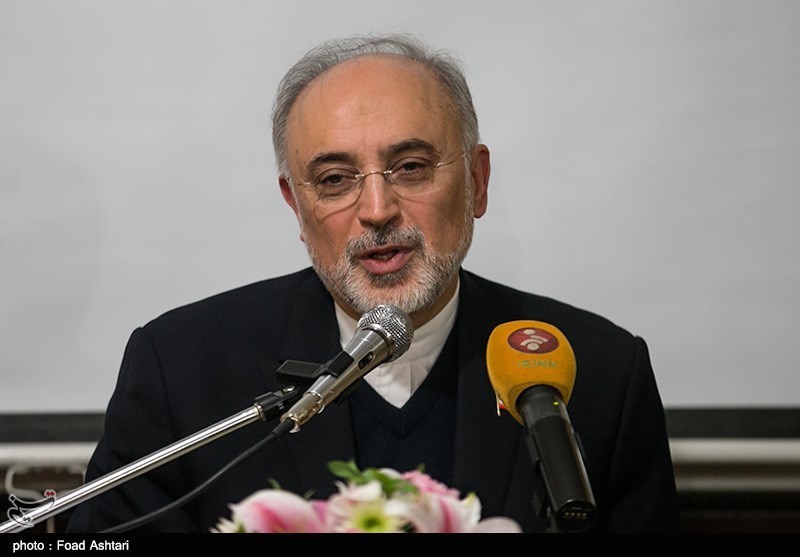“The IRGC’s recent (missile) war game was definitely not in breach of the JCPOA, since our missiles have not been designed for (carrying) nuclear warheads,” Salehi told reporters in Tehran on Tuesday.
While Iran has undertaken under the JCPOA not to design any missiles with the capability to carry nuclear warheads, the country’s other activities in the military sphere will go on routinely, he added.
Asked about the US threats to re-impose sanctions against Iran, Salehi said Tehran will keep doing what it deems necessary for its national interests.
His comments came after a recent missile exercise by the IRGC provoked hue and cry in the West.
The IRGC Aerospace Division test-fired a number of advanced ballistic missiles with pin-point accuracy in the drill.
IRGC Commander Major General Mohammad Ali Jafari had already described the message of the missile drill as security for Iran and its neighboring countries.
Later on March 14, the UN Security Council convened a session to study the issue, but said in a statement that it needed more technical information to determine whether or not the launches were a breach of a UNSC resolution that was approved after the Joint Comprehensive Plan of Action (JCPOA).
Iran and the Group 5+1 (Russia, China, the US, Britain, France and Germany) on July 14, 2015, signed the JCPOA, a 159-page nuclear agreement that terminated all sanctions imposed on Tehran over its nuclear energy program.
Afterwards, the 15-memebr United Nations Security Council passed a resolution that endorsed the JCPOA.
Resolution 2231 calls upon Iran “not to undertake any activity related to ballistic missiles designed to be capable of delivering nuclear weapons.”
Iranian officials have time and again affirmed that none of the country’s missiles have been designed to be capable of carrying nuclear warheads, because nuclear weapons have basically no place in Iran’s defense doctrine.
